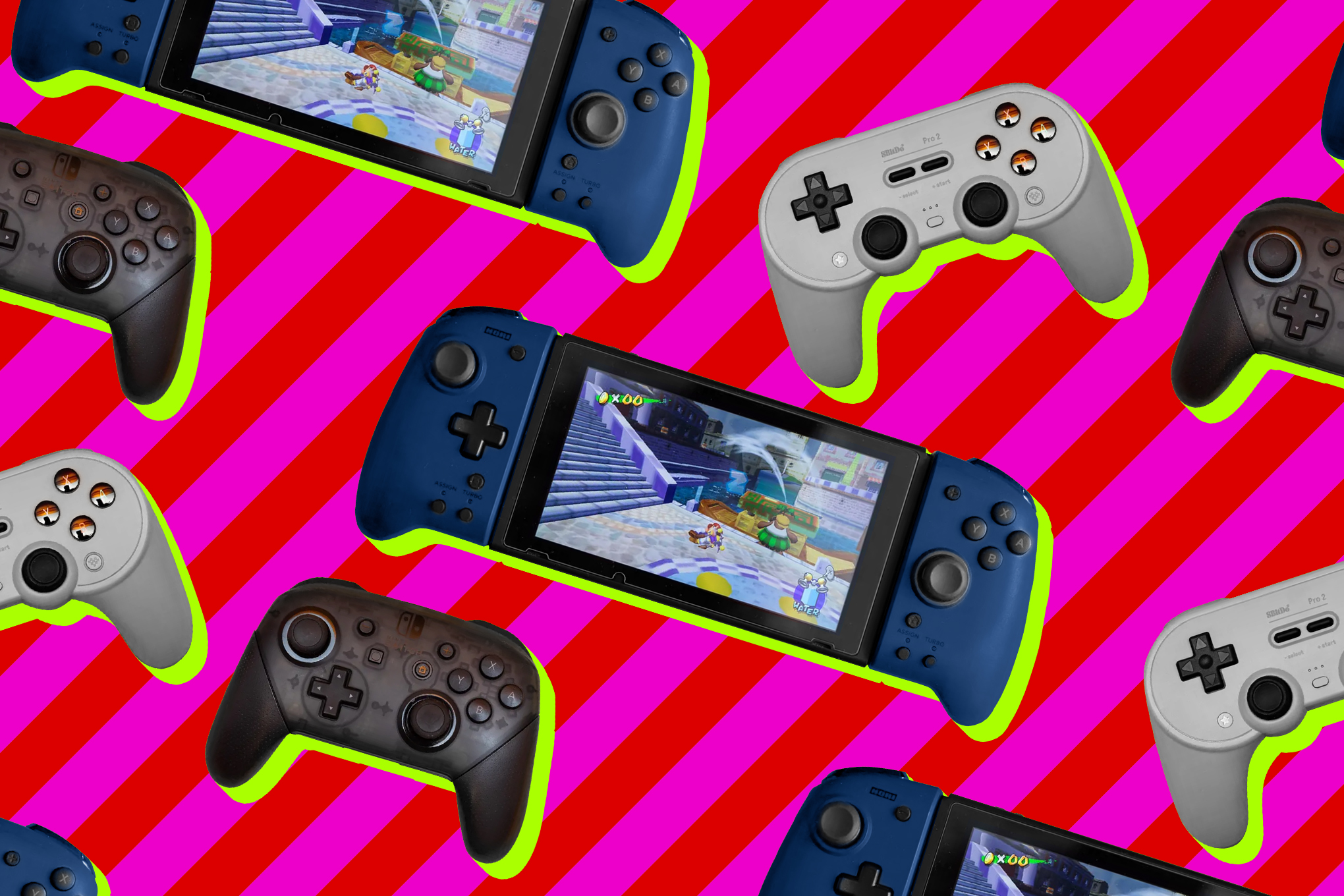In the world of gaming, few things are as universally cherished as a reliable controller. For Nintendo Switch enthusiasts, however, the pursuit of additional gamepads can often feel like an expedition into premium pricing territory. With official Nintendo Pro Controllers frequently commanding a hefty sum, many gamers find themselves at a crossroads: invest significantly in first-party hardware or explore the increasingly robust ecosystem of officially licensed, third-party alternatives. Recent sales, particularly those leading up to major retail events, have illuminated a compelling argument for the latter, showcasing how brands like PowerA and 8BitDo are delivering exceptional value without compromising on the fun.
The “Nintendo Tax” and the Quest for Alternatives
It’s no secret that official console accessories, especially from Nintendo, come with a certain premium attached. While the quality and integrated features of Nintendo`s Pro Controllers are undeniable, their price point often makes expanding a player`s arsenal, particularly for local multiplayer, an expensive endeavor. This economic reality has fostered a thriving market for third-party manufacturers, who operate under the blessing of official licensing to provide more budget-friendly, yet equally capable, options. It`s a classic case of supply meeting demand, where players seek cost-effective solutions for their gaming needs.
PowerA: The Officially Licensed Workhorse
PowerA has long been a prominent player in this space, recognized as one of Nintendo`s most prolific official partners. Their controllers are not merely generic alternatives; they often boast themed designs featuring beloved Nintendo characters like Super Mario, Kirby, Princess Peach, and Pokémon. These aesthetics, combined with significantly lower price points (often up to 50% off during sales), make them an attractive proposition.
Consider the highly popular Kirby Mouthful Wireless Controller, which at $30 (originally $50), offers not just a whimsical design inspired by Kirby and the Forgotten Land, but also core functionalities like six-axis motion controls. While some PowerA models, particularly the standard wireless versions, might forgo advanced features like rumble motors or NFC readers, they deliver on ergonomic comfort and reliable performance. Their reliance on AA batteries, while perhaps a slight inconvenience for some, offers up to 40 hours of gameplay, making them a practical choice for extended sessions.
Enhanced Features and Evolving Designs
PowerA’s lineup isn`t static; it evolves with player demands. Their “Enhanced Wireless Controllers” often include remappable back buttons, a feature increasingly sought after by competitive and comfort-oriented players, alongside USB-C charging for modern convenience. Some even feature PowerA’s Lumectra RGB lighting effects, adding a touch of personalized flair to the gaming experience. From compact “Nano” controllers perfect for smaller hands or portability to specialized “Advantage” lines promising future-proof technologies like Hall Effect sticks and GameChat buttons for the anticipated Switch 2, PowerA demonstrates a commitment to innovation within the licensed accessory market.
8BitDo: The Premium Third-Party Contender
While PowerA focuses on broad appeal and licensed designs, 8BitDo carved its niche by blending retro aesthetics with modern functionality, often catering to a more discerning gamer. Their “Ultimate” and “Pro” series controllers are frequently lauded for their robust build quality, highly customizable software, and exceptional ergonomics.
The 8BitDo Ultimate Bluetooth Controller, for instance, offers a premium feel akin to first-party offerings, often coming with a charging dock and advanced customization options through a dedicated app. For those who prefer the symmetrical thumbstick layout of a PlayStation controller, the 8BitDo Pro 3 Gamepad delivers with GameCube-inspired color schemes, bridging the gap between nostalgic design and contemporary performance. These controllers, though sometimes priced slightly higher than entry-level PowerA options, still represent significant savings over official Nintendo Pro Controllers, especially when caught during a sale. They often include features like Hall Effect joysticks, which mitigate stick drift – a common ailment in many modern controllers.
The Strategic Advantage of Third-Party Sales
The timing of these sales, often coinciding with large retail events, is no accident. It`s a strategic move that allows players to significantly expand their gaming setup or upgrade existing accessories at a fraction of the typical cost. For families, these deals mean more controllers for spirited multiplayer sessions without the eye-watering investment. For individual gamers, it`s an opportunity to experiment with controllers offering specific features like back buttons or different ergonomic profiles, enhancing their gameplay experience without a full-price commitment.
It’s a win-win: consumers gain access to high-quality, feature-rich controllers at accessible prices, and manufacturers solidify their position as viable, respected alternatives to first-party hardware. The gaming market thrives on choice, and these third-party developers, through innovation and competitive pricing, ensure that choice remains abundant and exciting.
Ultimately, the analysis of these deals reveals a deeper truth: the Nintendo Switch ecosystem is more vibrant and accessible than ever, thanks to the concerted efforts of licensed third-party manufacturers. They`re not just offering cheaper alternatives; they`re expanding the definition of what a Switch controller can be, providing tailored experiences from themed aesthetics to advanced competitive features. So, the next time you`re in the market for a new gamepad, remember that premium play doesn`t always have to come with a premium price tag. The secret might just be in looking beyond the official badge.

